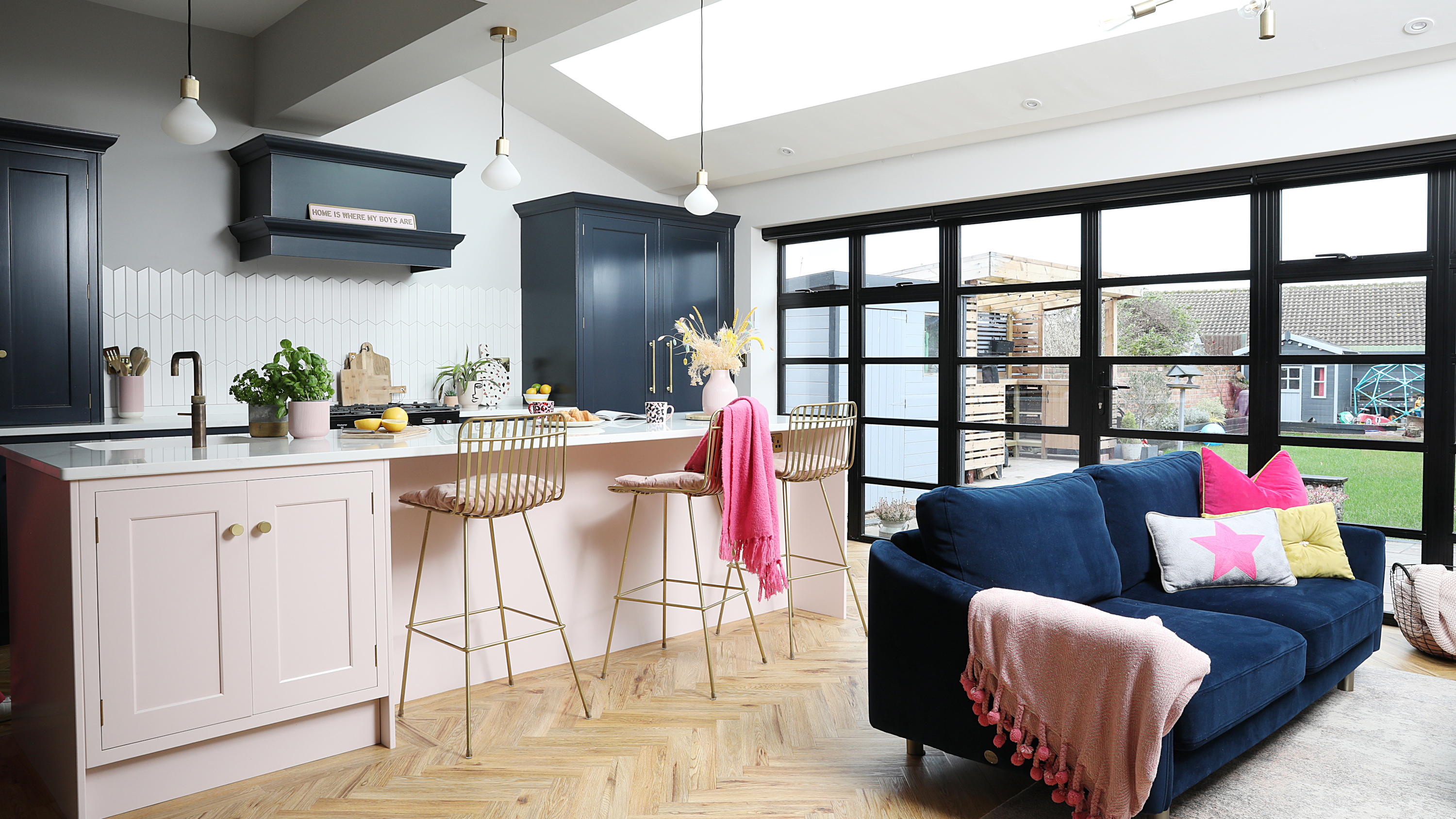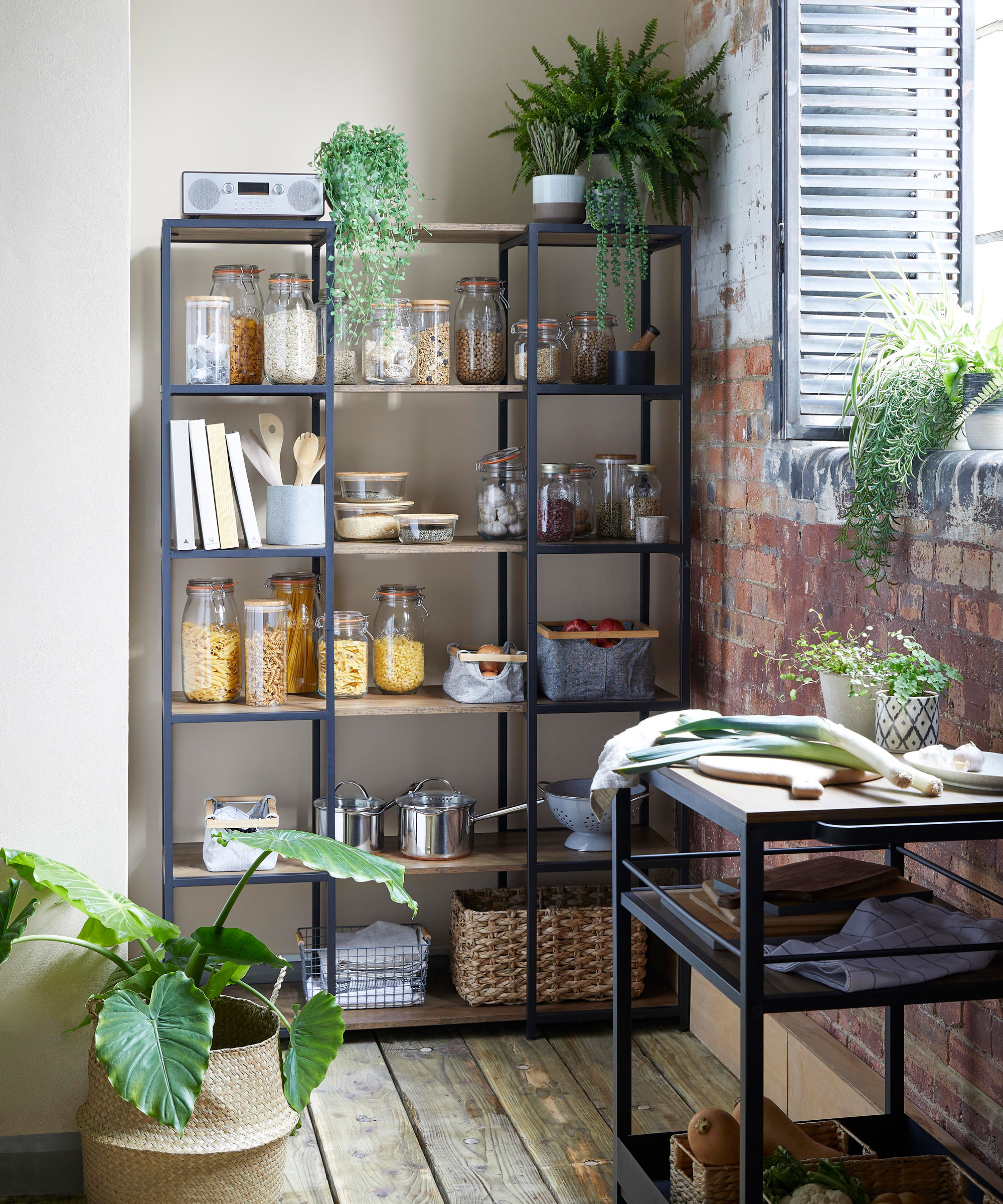6 ways to survive renovation stress according to experts
Remodeling can seriously impact well-being. This is how to prepare for the upheaval and make the process more pleasant, according to those who have survived renovation stress themselves...


No matter what its cause, stress is bad for our health. While the prospect of a home remodel appears to be an exciting, prosperous event that’ll lead to your sparkling new dream home, the process itself and the renovation stress incurred, can often leave a lot to be desired.
A recent survey of 1,003 people from Toolstation revealed that 60% of home renovations impact people's general well-being, and certain aspects of the process cause stress levels to dramatically spike.
According to the survey, it is kitchen remodels that are the most stressful, closely followed by the bathroom... Now, we’re big advocates of curating a home that’s perfect for you, and often that does involve a renovation. So what can we do to ensure the process is as smooth and pain-free as possible? We’ve chatted to a therapist, an organization guru and two of our very own current renovators to share how best to prepare for your renovation to keep stress levels low and excitement high.
1. Clear out as much as possible
Lindsey Davis, Acting Editor of realhomes.com, has recently renovated her whole kitchen, and has learned a thing or two about how best to manage the process.
'I'd recommend getting your things packed up well in advance of the tradespeople coming in, and use it as a chance to have a clear our,' she says. 'If possible, move stuff into storage to keep it clean and get it out of your hair.'
Lindsey also points out that even if you're only renovating one room, it's a good idea to keep other rooms clear too. 'With a big renovation, there will be a knock-on to other rooms, so if possible, get everything you definitely don't need well out of the way. For example, you might need plumbing or electrics extending, and this can mean trades having to work in other spaces of your home,' she says.

2. Prepare for things to take longer than planned
Siân Pelleschi is conference director at APDO and founder of decluttering service Sorted, Pelleschi suggests that learning to expect delays can boost your mental health and ease renovation stress throughout the process.
Get small space home decor ideas, celeb inspiration, DIY tips and more, straight to your inbox!
'Be prepared for things to take longer than expected. When you’re told a project will take four weeks, plan in for eight. There will likely be delays, whether it’s on materials or other elements you weren’t expecting. Then, should it run on time, only slightly over or to the anticipated time, you’ll be in a better place mentally and you’ll feel ahead of the game,' says Pelleschi.
Alison Jones assistant editor of Real Homes magazine, who is also in the throws of renovating her whole house, agrees: 'Try to stay flexible, particularly when expecting deliveries, as it's not unusual for materials to arrive weeks, if not months, later than planned,' she says.
'Keep builders and contractors informed and try to pencil in alternative days when they can come and install what you've ordered. If it doesn’t get delivered as scheduled, you can then fall back to plan/date b (or c or d…).'
3. Plan your amenities
Davis went through endless take-outs and cold dinners while she lived life without a kitchen, but one buy saved her.
'Take out becomes expensive and repetitive and there are only so many uncooked meals in most people's repertoires. Invest in a compact cooker of some sort like a microwave, air fryer or toaster oven. They are incredibly versatile for cooking a variety of easy meals, quickly,' she says. 'I was lucky to have a Ninja Foodi Max multicooker that does the lot. I could have made a whole roast dinner in it (if I'd had the energy)'.
'If you're going to be without a kitchen tap, shower, or toilet for some time, you need to make sure you have an alternative. Get plenty of water jugs or bottles you can fill up for periods where you will be without easy access to water. You will definitely need more than you think if you are doing lots of tea rounds.'
'And speaking of tea rounds, consider making a separate tea and coffee station for the trades to help themselves so you don't get in each other's way,' adds Davis.
'Whether or not you're moving out yourself, a portaloo and a good key lock box will make life much easier for you and your contractors.'

4. Keep on cleaning
Pelleschi warns of the perils of dust throughout your renovation. 'Be prepared for dust! It creeps in everywhere when there’s building work going on. Keep all doors closed and triple-tape around doorways that link to the building area where possible,' she says.
'And keep on cleaning! You won’t be able to combat all of the dust but just keeping on top of it will help in the long run. Even investing in a cleaner once a week for a short while if you don’t already have one will take the pressure off you or your family members.'
Davis also notes the importance of keeping your space tidy. 'Most trades are great at cleaning up after themselves and will often be marked for this on trade rating websites. However, the overall tidiness of the site will be your responsibility so once the trades leave, do a walk round to make sure the site is left in a good state for the next team. It can waste so much time (especially for wet trades like tiling, floor pouring and plastering) if they need to sweep and clean the site before they can do their part.'
5. Maintain your healthy habits
Sarah Tombs is a registered therapist and says that keeping up your healthy habits and sticking to your usual routine as far as possible will boost your well-being throughout your renovation.
'When you are stressed, many healthy habits like exercise, walking, meditation or heading to that gym class can be forgotten about. Yet in reality, those habits and self-care practices will serve to stabilize us during a stressful time and boost our wellbeing,' she says.
'Better still, if you are able to allow yourself the commitment of sticking to your usual routine as much as possible, that will support you by offering periods of downtime. A helpful technique would be to schedule these into your week and make them non-negotiables.'

6. Remember your comfort is important too
If you're renovating your whole house, Jones recommends buying yourself an inexpensive, temporary place to perch. 'Get yourself some inexpensive garden furniture to use inside. Whether it's a collapsible picnic chair (with cup holder) or a blow-up seat, you want it to be wipe-cleanable or something you won’t mind getting dust or even paint spills on. It will be somewhere to sit in the thick of the renovation so you don’t mark your best furniture.'
Pelleschi recommends taking yourself out of the way whenever you can. 'Try to spend pockets of time away from the renovation. Whether that’s a few hours or a few days, it’s always good to not be surrounded by the work whilst it’s going on and have a change of scenery.'

After joining Real Homes as content producer in 2016, Amelia has taken on several different roles and is now content editor. She specializes in style and decorating features and loves nothing more than finding the most beautiful new furniture, fabrics and accessories and sharing them with our readers. As a newbie London renter, Amelia’s loving exploring the big city and mooching around vintage markets to kit out her new home.